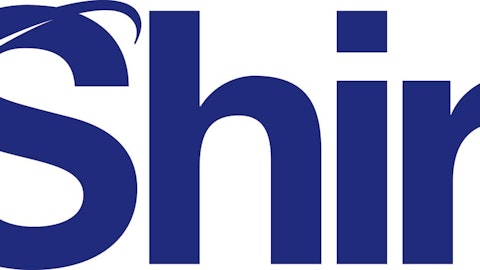
In 2012, Citigroup Inc (NYSE:C) shareholders voted against then-CEO Vikram Pandit’s pay, preceding his eventual resignation in the fall. Former Aviva CEO Andrew Moss wasted no time, resigning immediately when the British company’s shareholders rejected his pay package last year.
This year has been less satisfying and dramatic for shareholder rights advocates. Take just one surprising and deflating development: JPMorgan Chase & Co. (NYSE:JPM) shareholders did not vote to strip Jamie Dimon of his chairman title. Maybe the Dimon faithful can breathe a sigh of relief, but most of those who’d like to see real, constructive change in corporate governance probably aren’t.
The Dimon dilemma
Dimon’s success in keeping the chairman title is puzzling given negative events in the past year. The London Whale debacle resulted in a stunning $6 billion loss, and the incident poked a hole in a previously widely held belief: that Dimon was the best of banker CEOs. Bear in mind that when news of the London Whale scandal first broke last year, Dimon dubbed it a “tempest in a teapot.” Instead, it turned out to be a bona fide tempest, and rebutted the idea that Dimon could do no wrong.
In a logical world, the shareholder proposal should have had a shot — or at least garnered a much larger percentage of the vote, especially since proxy advisory firms Glass Lewis and Institutional Shareholder Services, or ISS, both recommended that shareholders vote for the resolution.
Instead, a mere 32% of JPMorgan Chase & Co. (NYSE:JPM) shareholders voted to split the roles. That’s not even as many as last year, when 40% voted in favor of a similar proposal. Here’s some perspective: As of the beginning of May, the bank faces at least eight investigations by regulators. Were JPMorgan Chase & Co. (NYSE:JPM) shareholders asleep when they voted?
The loyalty that most JPMorgan Chase & Co. (NYSE:JPM) shareholders feel for Dimon is clear; it might even be called hero worship. His reputation may be tarnished in the public eye as well as regulators’, but it appears that the firm’s own shareholders were terrified that Dimon would head out the door if the vote didn’t go his way.
Dimon wasn’t even facing an outright firing; splitting the roles would simply reduce influence and imbalance of power at the top. Still, many shareholders and analysts seemed panicked at the thought that Dimon would resign altogether if he lost the chairman role.
If the majority vote had flipped the other way, wouldn’t it have signaled a serious lack of character if Dimon decided to leave? A good leader can accept criticism and might even show a tad of humility after scandals.
A simple fix for stronger governance
From the corporate governance standpoint, separating the roles is simply common sense. Allowing a corporate leader to preside over the company and the board of directors doesn’t sound like a commonsense path to a robust and independent board.
Slowly but surely, many corporations have been evolving and separating the roles. GMI Ratings’ data shows that 68% of S&P 500 companies had combined CEO and chairman roles in 2005, but that percentage had dropped to 56.4% in 2012. About 21% of companies boasted an independent chairman last year, compared to a minuscule 8.5% in 2005.
Last summer, GMI also crunched its data to reveal that large-cap companies with different individuals holding the titles generated a 28% higher return over a five-year period.
Votes at some companies have crept close to the majority mark this year. John Chevedden’s proposal demanding an independent chairman at Kohl’s Corporation (NYSE:KSS) did creep over the majority mark, with votes in favor coming to 52%. Meanwhile, Hess recently agreed to split the roles, responding to pressure from activist investor Elliott Management, which was seeking to get five of its own onto Hess’ board.
Beyond Dimon
oProxy season isn’t over, and many companies still haven’t held their annual meetings. There are plenty of proxies left to vote on proposals even beyond CEO pay and chairman independence.
There are also more victories than we might think after Dimon’s continued hold of both his titles. Maybe shareholders were only half asleep.
JPMorgan Chase & Co. (NYSE:JPM) shareholders did punish directors on the company’s risk management committee; three barely gained majority votes in favor of their reelection. That’s a step in the right direction, particularly because corporate boards are a core place to demand accountability when things go wrong. Directors are supposed to look out for shareholder interests, after all.
The fact that the mere concept of taking away Dimon’s chairman title caused such a ruckus reflects a shift in the way public companies and their shareholders interact on governance issues. Shareholder proposals matter now, and have even become top headline material, and the ramifications of votes are taken seriously enough to be fodder for major debate. At one time, most shareholders barely registered the idea that voting their proxies mattered, so managements didn’t have to care, either.
The votes are in for Dimon, but it’s still just the beginning in the push for better corporate governance.
The article Setbacks After the Shareholder Spring originally appeared on Fool.com and is written by Alyce Lomax.
Alyce Lomax has no position in any stocks mentioned. The Motley Fool owns shares of Citigroup and JPMorgan Chase.
Copyright © 1995 – 2013 The Motley Fool, LLC. All rights reserved. The Motley Fool has a disclosure policy.
